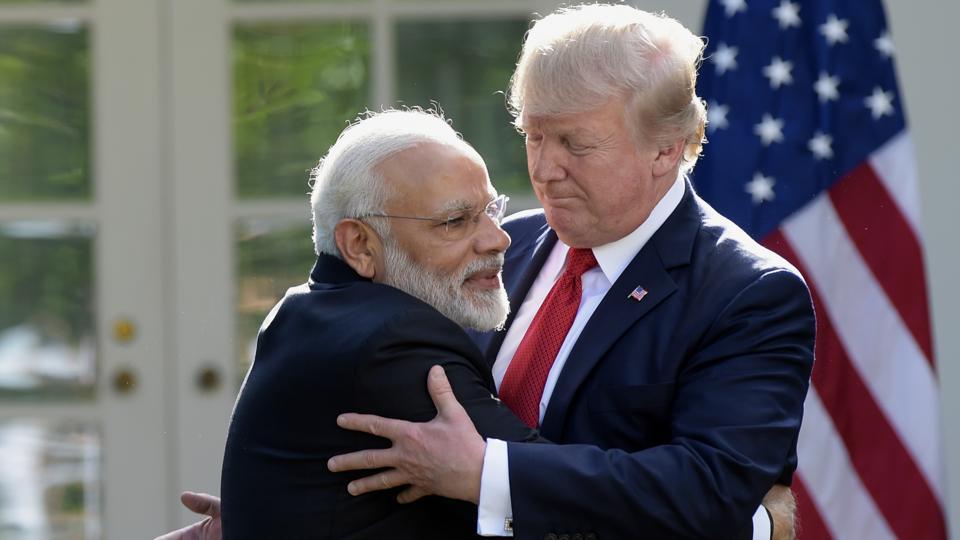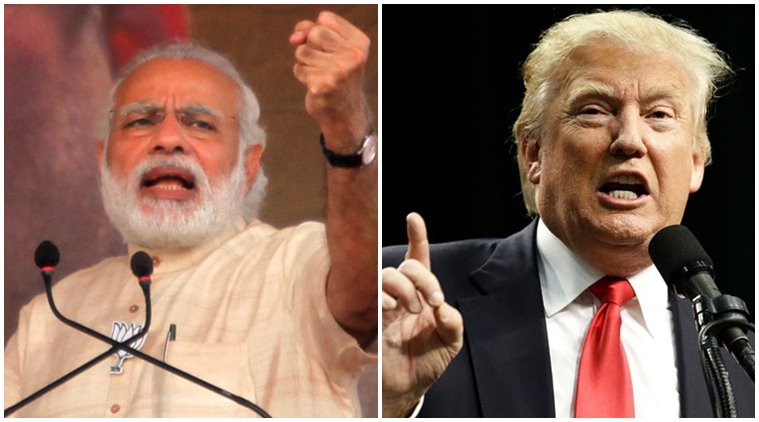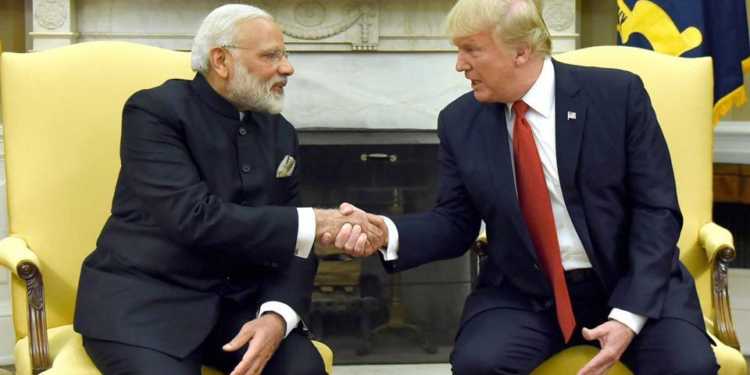That peculiar specimen of Indians who could go to any length for prime minister Modi but opposed Donald Trump tooth and nail, hide under a rock today when one speaks of Indo-American relations. To save face, some of them advance ridiculous versions of issues such as White supremacy, as if it was the most critical challenge of our times and as if their very lives depended on it. Perhaps they are afflicted by an overdose of Obama- politically correct and refined discourse that swept people of their feet coupled with zero action on the ground. This typical trait epitomized Indo-American relations when the world’s blue-eyed boy used to be president.
But times have changed. Those who made fun of candidate Trump attending a Hindu rally and promising closer ties with India, those who dismissed it as a mere political gimmick, now avoid the issue altogether. Unlike their blue-eyed boy who promised tough action against Pakistan while meeting Indian-Americans on the campaign trail but proved impotent despite finding Osama in Pakistan, at least Trump wasn’t dishonest. The advantage of joining politics and landing a presidency almost overnight is that one has zero compulsions or baggage in the ‘swamp’, and is free to fulfill their promises. Less than a year into his presidency, Trump has helped India more than Obama could ever dream of. In fact, he has helped us more than any past American president.

If one examines prime minister Modi’s foreign policy closely, this is exactly what India needs today on the international stage. A belligerent China needs to be shown its place. Other world powers need to empathize with India on its Pakistan policy. Among the changes one witnesses after the advent of Modi, is that India is emerging as a global power that acts on the international stage in a way that is worthy of a country with India’s credentials. The intensity and frequency of engagement and exchange between the rest of the world and India is on the rise, and certain norms must be established to make the Modi doctrine sustainable.
‘Natural allies’ is a phrase several American and Indian heads of state have used to describe relations between the countries. But Donald Trump is perhaps the first American president to grasp exactly how natural this alliance is. That both the countries are the largest democracies in the world and other such credentials are merely symbolic. Both countries are natural allies because China, radical Islam and an unstable Af-Pak region are common threats.
Narendra Modi never thought Pakistan would cut down on its belligerence if he extended an olive branch to them. He did it nonetheless, but only to have a case against Pakistan when he would go about setting them straight. Imagine for a moment the effect India’s case against Pakistan would have had on an Obama administration or a Clinton administration. They were at the helm of affairs when the United States killed Osama Bin Laden in a military town of Pakistan. Far from taking any action, Pakistan was rewarded with monetary aid.
But all that has changed now. Look at these tweets for instance:
The United States has foolishly given Pakistan more than 33 billion dollars in aid over the last 15 years, and they have given us nothing but lies & deceit, thinking of our leaders as fools. They give safe haven to the terrorists we hunt in Afghanistan, with little help. No more!
— Donald J. Trump (@realDonaldTrump) January 1, 2018
It's not only Pakistan that we pay billions of dollars to for nothing, but also many other countries, and others. As an example, we pay the Palestinians HUNDRED OF MILLIONS OF DOLLARS a year and get no appreciation or respect. They don’t even want to negotiate a long overdue…
— Donald J. Trump (@realDonaldTrump) January 2, 2018
Good idea Rand! https://t.co/55sqUDiC0s
— Donald J. Trump (@realDonaldTrump) January 6, 2018
India must thank its stars that when the time came to take on and corner Pakistan on the international arena, it wasn’t an Obama administration or a Clinton administration calling the shots in Washington DC. The Trump administration not only supported India’s stance, but actively helped India on its quest. Kashmiri separatists have been declared global terrorists by the administration, which is a clear departure from the neutral stance the Americans have held on Kashmir. But most importantly, the Trump administration has cracked down heavily on the monetary aid that America routinely sent to Pakistan whenever the Pakis arrived in DC with a begging bowl in hand. The aid, often sent with a purpose of combatting terror, was used to conduct terrorist attacks on Indian soil. As the dollar taps are turned off, perhaps Obama’s fans in India should realize that actions speak louder than words.
Trump’s speech on his administration’s policy in South Asia has been another turning point. Laying out his administration’s policy for the region, he lambasted Pakistan for harboring terror. At the same time, he praised India’s role in rebuilding Afghanistan, and asked India to play a more important role in the future. Contrary to what many believed he would announce, Trump has refused to fully withdraw American troops from Afghanistan. He seems to have learnt from his predecessor’s mistake, whose hasty withdrawal of troops from Iraq created a void that was eventually filled with the likes of the ISIS. Trump seeks to avoid such a situation in Afghanistan. A potential void in Afghanistan would almost certainly be filled by the Taliban, nurtured and trained by the Pakis. It has happened before, and Trump doesn’t want history to repeat itself.

This speech reiterated his worldview in the context of South Asia. Trump’s understanding of the region is far superior than any other American politician. He realizes who the troublemakers in the region are, and whom the Americans should ally with. There is no politically-correct hyphenated pussyfooting when it comes to dealing with India and Pakistan. For the first time, the Americans have made a clear choice. According to some reports, this has come as a rude shock to the Pakistanis, who were treated well in the past irrespective of their actions. Protest have erupted in Pakistan against the Trump administration, and senior public servants slated to visit the United States have hastily cancelled their trips. Bilateral talks between Pakistan and the United States stand effectively suspended.
The United States also realizes that it needs a partner in Asia to keep China in check. The China threat looms large over America’s traditional allies in the continent as well, who are too insignificant to take on the dragon. There is but one country around which all of China’s smaller adversaries can rally, and which can take on China effectively. The Doklam episode, wherein India called China’s bluff, exposed the dragon threadbare and raised India’s stature as an effective counter to the Chinese. The Americans have already encouraged and helped their allies in the region by conducting joint military exercises with India, sharing NATO-level military technology with the Indians, and supporting India’s bid to enter elite international groupings to be at par with the Chinese.
This is the change of mindset that American foreign policy has undergone after the advent of Donald Trump. In fact, though the frauds in the mainstream media continue to focus on Russia and Syria, the rapprochement between two global powers like India and the United States is the most significant story of Trump’s foreign policy so far.

























